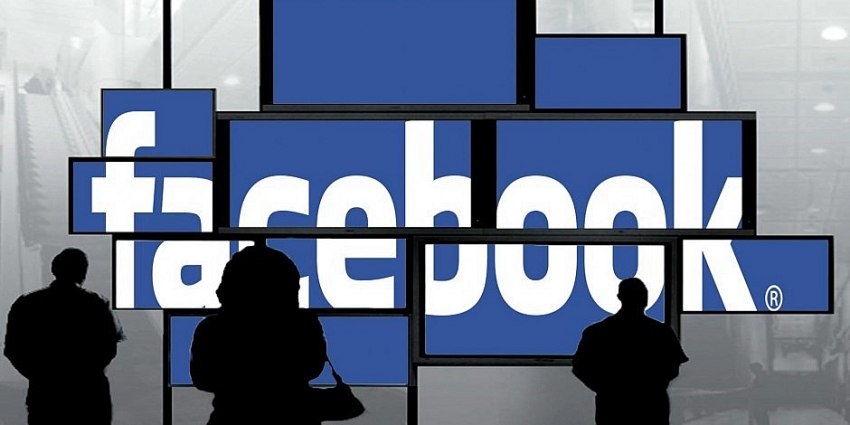Facebook is accused of violating Vietnamese laws
 |
| The Vietnamese authority has made an official accusation against Facebook. Source: dantri.com.vn |
According to deputy director of ABEI Le Quang Tu Do, Facebook has allowed its advertisers to run a large number of illegal advertisements, including anti-state propaganda, prostitution, and illegal alcohol trading, among others.
Facebook currently allows users to buy advertisements on its platform to bring their messages to target customers, for diverse purposes. Of course, the terms of the advertising contracts do not include obeying Vietnamese laws.
While it remains unclear what action will follow, this is the first official announcement to this effect. An official announcement by a government agency will likely be answered by the relevant government bodies, be it the tax authorities or the related law enforcement bodies, which suggests redoubled efforts to bring Facebook under stricter control.
2018 also saw Pepsico Vietnam as the latest victim of fake news spreading on Facebook. According to Pepsico Vietnam’s sources cited by dantri.com.vn, the Facebook account of Nguyen Minh Tuan posted a status that his kidney failure was a result of him drinking three bottles of Pepsico energy drink Sting every day. The fake information quickly spread on the social network, gathering 65,114 shares and 93,600 views within six days.
Later on, a legal company on behalf of Pepsico Vietnam sent notices to the Ho Chi Minh City Department of Information and Communications and Facebook with evidence proving that the status was false. However, it was not for another seven days that Facebook removed the offending post.
Along with the violations, Facebook has “forgotten” its obligation to pay tax to the Vietnamese government for many years. According to the Ministry of Finance (MoF)’s report, in 2016-2017, Facebook and Google only paid VND120 billion ($5.28 million) in taxes in Vietnam. This number is dwarfed by Facebook’s average revenue of $235 million in the country, according to the Ministry of Information and Communications.
The fact that Facebook has no representative office in Vietnam has made it difficult for local authorities to collect their due from the tech giant, despite the fact that the Law on Cybersecurity has come into force since the beginning of this year.
Not only Vietnam, but also many countries across the world have made strong attempts to collect taxes from Facebook and other tech companies like Google and Amazon.
Over the past few years, the European Commission (EC) has been playing a cat-and-mouse game with Facebook and Google, trying to corner them into paying tax. The EC is currently planning to issue a new tax worth $5.0 billion per year on Facebook, Google, and Amazon.
According to the UK’s The Guardian, the growing dominance of digital companies is a long-standing threat to Europe’s tax base, while also sparking questions of fairness. The EC estimates that digital businesses pay an effective average tax rate of only 9.5 per cent, compared with the 23.2 per cent for brick-and-mortar companies.
What the stars mean:
★ Poor ★ ★ Promising ★★★ Good ★★★★ Very good ★★★★★ Exceptional
Related Contents
Latest News
More News
- Foreign leaders extend congratulations to Party General Secretary To Lam (January 25, 2026 | 10:01)
- 14th National Party Congress wraps up with success (January 25, 2026 | 09:49)
- Congratulations from VFF Central Committee's int’l partners to 14th National Party Congress (January 25, 2026 | 09:46)
- 14th Party Central Committee unanimously elects To Lam as General Secretary (January 23, 2026 | 16:22)
- Worldwide congratulations underscore confidence in Vietnam’s 14th Party Congress (January 23, 2026 | 09:02)
- Political parties, organisations, int’l friends send congratulations to 14th National Party Congress (January 22, 2026 | 09:33)
- Press release on second working day of 14th National Party Congress (January 22, 2026 | 09:19)
- 14th National Party Congress: Japanese media highlight Vietnam’s growth targets (January 21, 2026 | 09:46)
- 14th National Party Congress: Driving force for Vietnam to continue renewal, innovation, breakthroughs (January 21, 2026 | 09:42)
- Vietnam remains spiritual support for progressive forces: Colombian party leader (January 21, 2026 | 08:00)

 Tag:
Tag:























 Mobile Version
Mobile Version